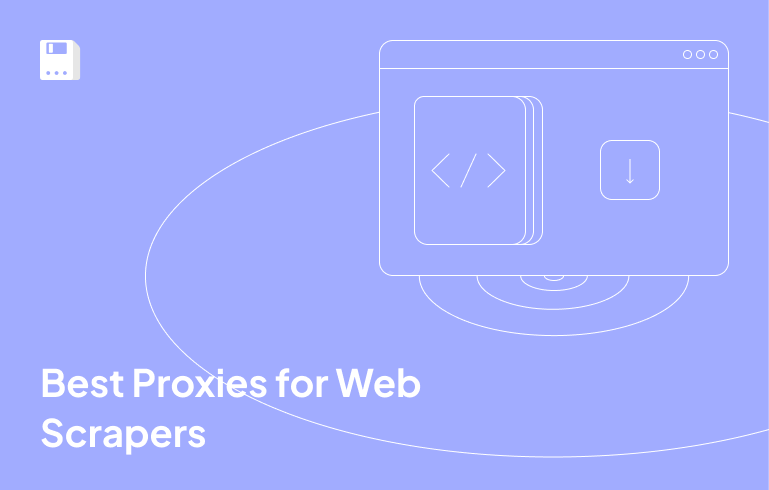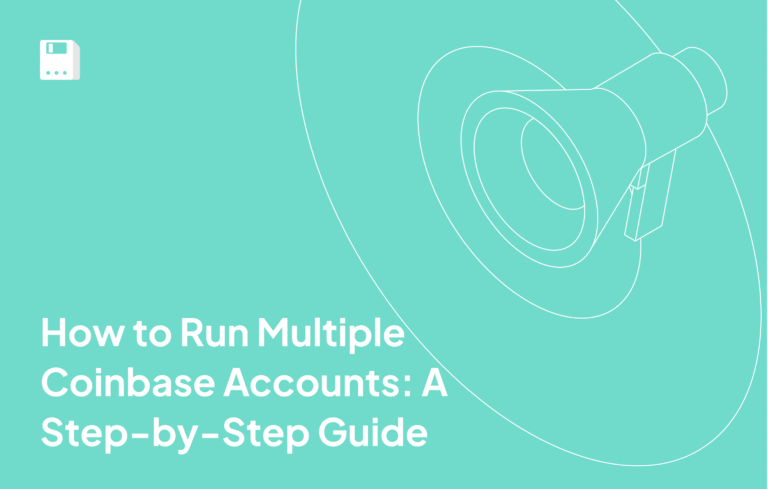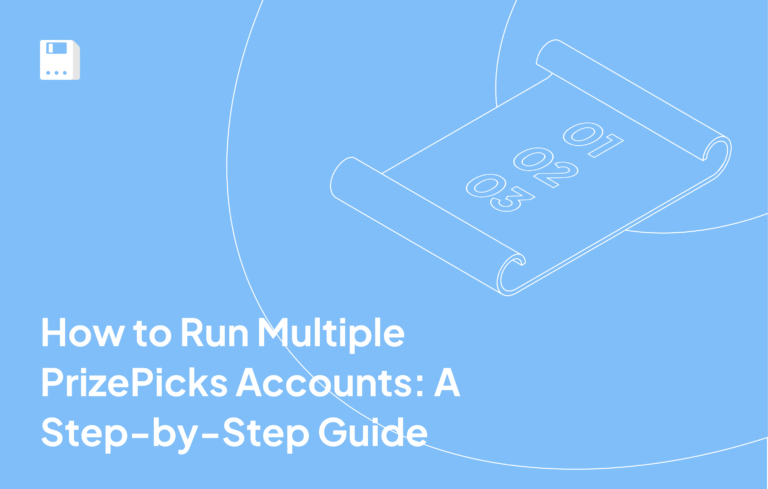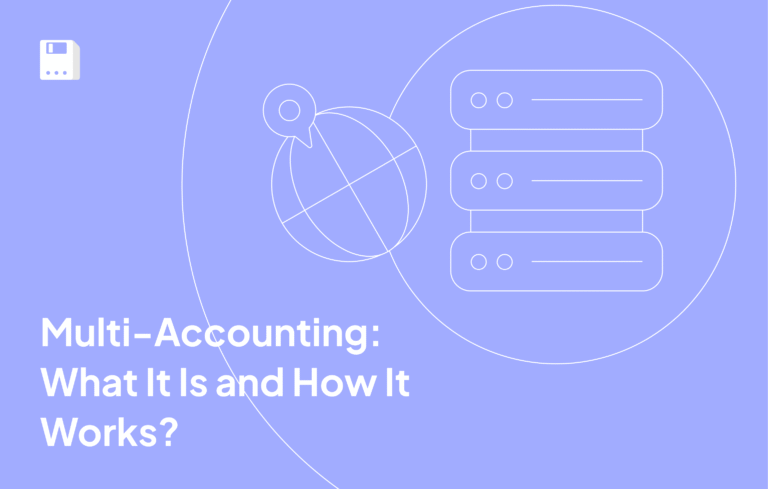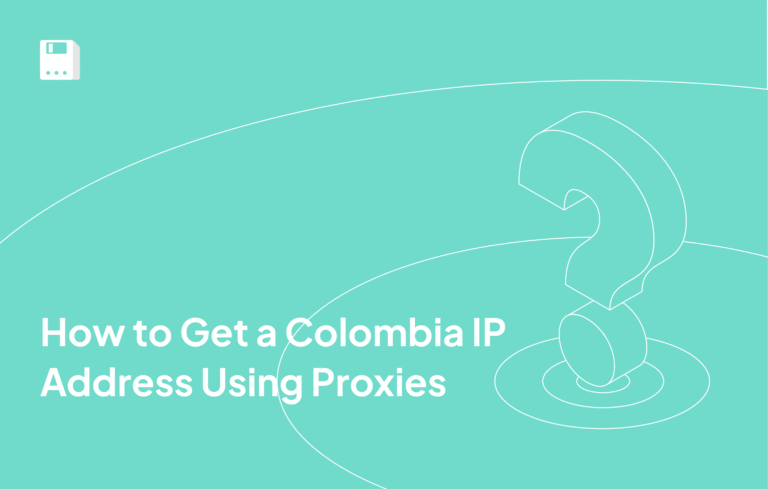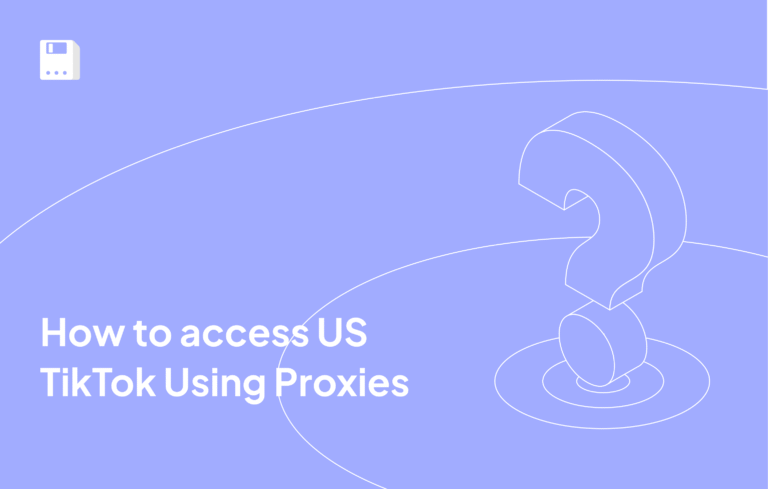If you’ve ever had your web scraper blocked mid-run, you already know how frustrating scraping without proxies can be. Proxies for web scraping hide your real IP and help you avoid bans, rate limits, and CAPTCHAs.
But there is a large variety of proxy solutions out there. Some are faster, some are sneakier, and others just cost way too much for what they offer. That’s why choosing the best proxies for web scraping is a must.
In this guide, you’ll learn:
- What web scraping proxies are and why they matter
- The different types available (residential, datacenter, mobile)
- What are the best web scraping proxy options in 2025
- How to choose a proxy service based on your scraping needs
- Common mistakes to avoid when picking a proxy scraper setup
What Are Proxies and Why Use Proxies for Web Scraping?
When you’re scraping data from the web, you’re essentially sending a bunch of requests to a website. If those requests come from the same IP address, sites will catch on and start blocking you.
Proxies for web scraping act as intermediaries between your scraper and the websites you’re targeting. They mask your original IP address, making requests appear as if they’re coming from different users. This mechanism is what reduces your chance of getting blocked.
Using a good web scraping proxy matters because proxies enable you to:
- Avoid getting blocked – Proxies rotate your IP address so sites can’t detect scraping activity easily.
- Access geo-restricted content – Want to see prices in the US or UK? Proxies let you target specific regions like China, Germany, etc.
- Increase success rate – With the right proxies, your scraper can bypass CAPTCHAs, IP bans, and firewalls.
- Scale safely – When you need to collect thousands of pages quickly, proxies allow you to parallelize requests without detection.
Using proxies gives your scraper the stealth and flexibility it needs to operate efficiently.
Some situations where proxies are absolutely essential:
- Scraping large volumes of product listings or reviews.
- Collecting search engine results (SERP scraping).
- Gathering data from social media platforms.
- Running scrapers 24/7 without getting banned.
Without a proxy, even a small-scale scraper can get blocked in minutes. With the right proxy services for scraping, you can run complex data collection operations without interruptions.
Types of Proxies for Web Scraping
Choosing the best proxy type for your scraper depends on your budget, speed requirements, and how stealthy you need to be. Let’s break down the main types of proxies for web scraping you’ll run into.
1. Residential Proxies
Residential proxies use real IP addresses from home internet connections. Websites see them as ordinary users, which means fewer blocks or CAPTCHAs. They’re perfect for sites that actively detect scrapers.
- Great for scraping protected or sensitive websites
- High anonymity, low ban rate
- Typically more expensive
- Slower compared to datacenter proxies
2. Datacenter Proxies
Datacenter proxies are hosted on cloud servers. They’re fast, affordable, and great for scraping in bulk, but they’re way easier to detect and block.
- Best for large-scale scraping jobs
- Low cost, high speed
- May trigger blocks on well-defended sites
3. Mobile Proxies
Mobile proxies use IP addresses from 3G/4G/5G mobile networks. They’re the most trusted proxy type because websites hesitate to block mobile IPs.
- Ideal for scraping social media or ad verification
- Extremely stealthy, but slower and costly
- Limited IP pool compared to others
Which Proxy Type Should You Use?
Here’s a quick comparison of different proxy types for web scraping:
| Proxy Type | Speed | Anonymity | Cost | Ideal Use-Case |
| Residential | Moderate | High | Medium-High | Scraping well-protected websites |
| Datacenter | High | Moderate | Low | Bulk scraping tasks |
| Mobile | Moderate | Highest | High | Social media, mobile-only sites |
- Choose residential proxies when scraping sensitive sites like e-commerce or real estate platforms.
- Go with datacenter proxies for fast, large-volume scraping where stealth is less important.
- Use mobile proxies if your targets are extremely aggressive or mobile-specific.
Best Proxies for Web Scraping (Top Picks in 2025)
Choosing the right can make or break your scraping project. We’ve handpicked the best web scraping proxy providers in 2025 based on speed, reliability, proxy pool size, and ease of use.
1. FloppyData
FloppyData offers high-speed, affordable datacenter, residential, and mobile proxies and user-friendly dashboards. It’s a solid choice for scrapers who want reliable performance without breaking the bank.
Key strengths:
- Great price-to-performance ratio
- Fast response times and easy proxy management
- Support for rotating IPs and geo-targeting
- Flexible plans for beginners and pros
For budget-conscious scrapers, FloppyData delivers both speed and stability. Try their datacenter proxies or explore residential proxies based on your scraping needs.
2. Oxylabs
Oxylabs has built a reputation around enterprise-grade proxies. Their residential proxy pool is one of the largest, and their infrastructure is optimized for scraping dynamic sites like e-commerce stores and job boards.
Key strengths:
- 175 M+ residential IPs worldwide
- Built-in web unblocker and session control
- High success rate even on JavaScript-heavy pages
- Excellent for SERPs, travel, and real estate data
Perfect when you need to scrape at scale without worrying about detection.
3. Bright Data
Bright Data is a market leader in proxy services for scraping. They offer full control, deep analytics, and powerful tools like a Proxy Manager and CAPTCHA solver.
Key strengths:
- Large global proxy network
- Access to residential, mobile, and datacenter proxies
- Built-in compliance tools and data center certifications
- Ideal for enterprise-level operations
It’s one of the priciest options—but the quality is hard to beat.
4. ProxyEmpire
ProxyEmpire is a lesser-known gem offering residential proxies with flexible pricing. It’s a smart option for small teams or hobbyists.
Key strengths:
- Decent pool of rotating residential IPs
- Simple setup, fair pricing
- Supports geo-targeting by country
- Good success rate for mid-volume scraping
A strong middle-ground option when Bright Data is too much, and free proxies aren’t enough.
Here’s a quick overview of these top choices:
| Provider | Proxy Types | Cost Level | Best Use-Case |
| FloppyData | Datacenter, Residential, Mobile | Low | Budget-friendly, high-speed tasks |
| Oxylabs | Residential, Datacenter, ISP, Mobile | High | Complex, protected sites |
| Bright Data | Residential, Datacenter, ISP, Mobile | High | Large-scale, high-volume scraping |
| ProxyEmpire | Datacenter, Residential, Mobile | Medium | Mid-scale, moderate complexity |
How to Choose the Best Proxies for Your Scraping Needs
Not sure which proxy to go with? The “best” proxy depends entirely on your project’s goals. Do you need raw speed, or is staying undetectable more important? Here’s how to figure it out.
1. Identify Your Goal
What are you scraping and how often? If you’re scraping thousands of pages per minute, speed matters most. If you’re targeting protected websites, anonymity is key.
2. Evaluate Reliability
Look for providers with high uptime (99%+), low error rates, and transparent infrastructure. Read reviews, ask for uptime stats, or check if they offer SLAs (Service Level Agreements).
3. Consider Cost
Balance the budget with performance.
- Datacenter proxies are cheaper, but more detectable.
- Residential proxies cost more, but get blocked less.
- Mobile proxies are the most expensive but rarely fail.
4. Check Proxy Locations
Need to see local prices in Germany or verify ads in the U.S.? Make sure your provider offers IPs in the regions you’re targeting. Some, like FloppyData’s country proxies, let you choose by location.
5. Trial First
Always test before scaling. A good provider will let you run a free or low-cost trial. Test speed, success rate, and how well they handle your specific scraping target.
Common Mistakes When Selecting Proxies for Web Scraping
Choosing the wrong proxy services for scraping can lead to slow scrapers, constant bans, and wasted budget. Here are the biggest mistakes to avoid:
Using Free Proxies
They might sound tempting, but most free proxies are slow, overused, and often flagged.
- IPs are shared by thousands of users
- High chance of bans and failed requests
- No support, no uptime guarantees
If you’re serious about scraping, skip the free tier.
Ignoring Proxy Rotation
Sending all requests through the same IP? You’re basically asking to get blocked.
- Use rotating proxies to cycle IPs automatically
- Residential and datacenter services often include this
- Bonus: reduces CAPTCHAs and 403 errors
FloppyData’s rotating proxies are a smart choice for this.
Going Too Cheap
Budget options can work, but going too cheap means bad IPs, weak support, and low success rates.
- You’ll spend more time debugging than scraping
- Slow speeds kill efficiency
- Lack of geo-targeting limits flexibility
Pay for what you need, just make sure the value matches the price.
Not Matching Proxy Type to Scraping Task
Using datacenter proxies for highly protected sites? Or mobile proxies for scraping news headlines?
- Match the tool to the job
- Use residential or mobile proxies when stealth is critical
- Use datacenter proxies when speed and cost-efficiency matter
Forgetting to Test
Always run small-scale tests before committing.
- Check latency, error rate, and content accuracy
- Some providers shine in theory, but flop in practice
Avoid these traps, and your proxy scraper setup will run smoother, faster, and with fewer bans.
Conclusion
Choosing the best proxies for web scraping significantly impacts your scraping success. The right proxy helps avoid blocks, increases efficiency, and saves you time and money.
Carefully consider your goals, budget, and proxy types when selecting proxy services for scraping. Whether speed or anonymity matters more, providers like FloppyData offer reliable solutions that meet most scraping needs.
If you’re looking for a reliable, budget-friendly solution, check out FloppyData’s proxy offerings. From rotating datacenter proxies to residential IPs by location, they’ve got you covered.
Frequently Asked Questions
What Is the Difference Between Residential and Datacenter Proxies?
Residential proxies use real IP addresses from home connections, offering higher anonymity but slower speeds. Datacenter proxies are server-based, faster, cheaper, but easier to detect and block.
Do Proxy Services for Scraping Slow Down My Web Scraper?
Quality proxies typically add minimal delay. Datacenter proxies are usually faster, while residential and mobile proxies can slightly slow scraping down due to network latency.
Can I Use a Proxy Scraper With Any Proxy Type?
Yes, but not all proxies perform equally well.
- Use residential or mobile for stealth
- Use datacenter for speed
- Make sure your scraper supports rotation and geo-targeting if needed
Can I Use Different Types of Proxies Together?
Yes, combining proxy types is common. Using residential proxies for protected sites and datacenter proxies for speed-sensitive tasks can give you optimal results.
Why Are Residential Proxies More Expensive Than Datacenter Proxies?
Residential proxies use real, home-based IPs, making them harder to block and more trustworthy, hence their higher cost compared to easily detectable datacenter IPs.
Is It Legal To Use Proxies for Web Scraping?
Generally, yes, if you’re scraping publicly available data and respecting the site’s terms. Always check local laws and avoid scraping sensitive or private information.
What Makes FloppyData One of the Best Proxies for Web Scraping?
FloppyData offers reliable, high-speed datacenter proxies at budget-friendly prices, ideal for bulk scraping tasks requiring fast, stable performance.
FAQ
Which proxy types are best for different web scraping tasks?
- Residential proxies: Ideal for sensitive or anti-scraping targets like e-commerce, due to high stealth.
- Datacenter proxies: Best for bulk scraping where speed matters and stealth is less critical.
- Mobile proxies: Use for very aggressive targets or mobile-specific data extraction.
What makes FloppyData stand out for web scraping?
FloppyData offers fast, cost-effective residential, datacenter, and mobile proxies. They include rotating IPs, geo-targeting, and dashboards that are user-friendly - making it a great middle-ground between performance and affordability.
Share this article:
Table of Contents
Proxies at $1
Get unlimited possibilities

